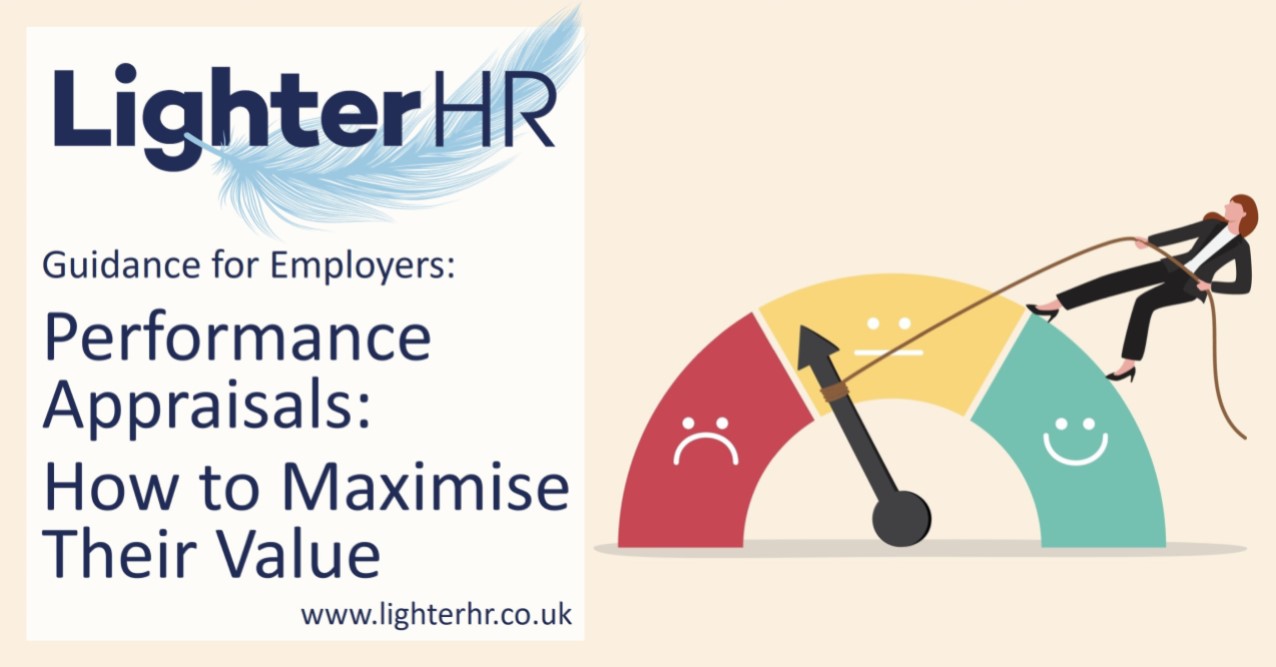Performance appraisals tend to be something businesses either embrace, ignore, or conduct in a fairly half-hearted manner. This is because they know they should do them but don’t really want to. The businesses that don’t fully engage with performance appraisals tend to be those who haven’t seen any benefit from them.
We wouldn’t be a particularly good HR consultancy if we sat here and told you all that it was fine to ignore the area of performance appraisals. We know that they can have a really positive impact on business performance. In addition, we know that they are key to helping you manage poor performers. However, when they aren’t done well these benefits aren’t realised. Therefore the reasons for doing them aren’t clear to the business.
We thought it would be worth sharing with you some of the common issues with performance appraisals so that you can think about changes you could make to get the most out of the process.
Time to read out post: 5 minutes
The topics covered in this post are:
1. Poor Preparation for Performance Appraisals
We do know that it can be really difficult to find time to prepare for performance appraisals. If you don’t prepare, however, then the value they add to your business will be limited.
In the ideal world, you’ll receive the employee’s self-assessment a couple of weeks in advance. This gives you time to think about what they have to say and what you want to say in return. You’ll see any areas of disagreement and be prepared with the messages you need them to hear.
If this is a million miles from where you are at the moment then start by making a small change to your approach.
Ahead of the meeting just think about three positive messages you need to deliver. Then consider three things you want the employee to improve on. It’s not perfect but it’s a very positive step in the right direction.
2. Too Nice or Too Nasty
An unbalanced performance appraisal will give limited value to your business.
- An appraisal where you sit and explain to the employee all of the ways in which they are failing without giving any encouragement will simply lead to a very demotivated employee.
- An appraisal where you sit and tell someone that they are amazing and you couldn’t cope without them will leave you an employee with a rather large ego and no desire to get better at what they do.
You need to provide balance.
For those individuals where finding something positive to say really is a challenge, you need to think about how the news is delivered.
If they really are that hopeless then what are you as a business going to do about it? Are there training opportunities that could help? Does the individual need to be in a different role? You also need to think about the best next steps. An individual who is underperforming at this level should be addressed through the disciplinary process.
For those individuals where it is difficult to find areas for improvement think about additional areas they could be involved in.
There are those people who are very happy doing what they do. You’re happy with them doing what they do and no one is looking for anything more. In these cases use the performance appraisal to re-affirm that what they do adds value. You can then double check that they really aren’t looking for any additional responsibility.
3. No Follow-up after Performance Appraisal
Part of the performance appraisal should be identifying areas where employees need to improve.
If they are told that they aren’t very good at something but then no action is taken to help them get better then this just becomes demotivating.
We firmly believe that an employee’s career is their own and that they have to take the initiative to address short-comings. However, you need to set them a framework within which to do this.
- Make it clear that they are expected to identify ways in which they can improve.
- Then set deadlines as to when they should come back to you with their ideas.
- You can then work with them to manage any unrealistic expectations.
We work with an approach where the training need is identified and documented, the employee then states what they need to do to address the need, they state what support they need from the business to address the need and then a timeframe for improvement is set.

Need help in getting the most from Performance Appraisals?


